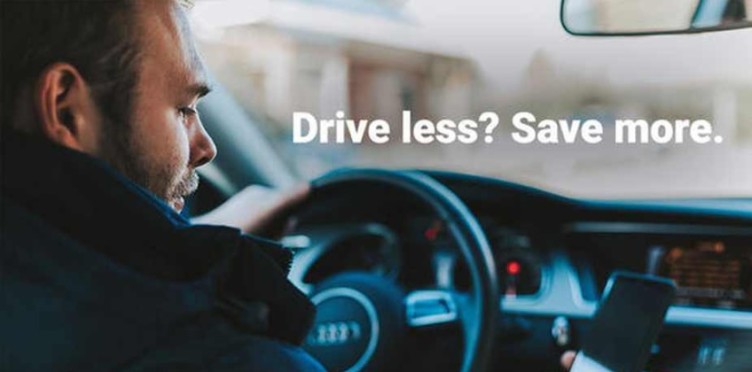
It seems as if every day brings news of yet another company that is using artificial intelligence to leverage smartphone data for “non-invasive” analytics of human movement. Our smartphones and smartwatches and fitbits can detect whatever activity we are doing, how well or poorly we are doing it, how it is affecting our mood, and whether we are drowsy, drunk, or suffering some undiagnosed infirmity.
Television commercials from Apple and Google tout the benefits of this non-invasive invasion of privacy – not unlike the privacy annihilation of Google Search. It reminds me of Fullpower founder (and reputed smartphone inventor) Philippe Kahn’s description of a human being’s movements being the equivalent of a signature or fingerprint. Kahn has leveraged biosensing analytics associated with smartbeds to diagnose ailments and predict menstrual cycles.
The implications of this work can as easily apply to automobiles. At the Drive TLV startup event on the Georgia Tech campus in Atlanta this week, a ConActions executive described how the company leverages steering wheel data to assess a driver’s cognitive state – fatigue, inattention, anxiety, or inebriation.
ConActions’ work is being subject to validation and testing by Volkswagen and Hyundai, among others. The implications are considerable. If the mere act of steering a car can reveal such a wide range of conditions, what further conclusions can be drawn from a deeper dive into the full suite of sensors in a typical vehicle.
Of course, regulators are increasingly requiring driver monitoring systems – literally driver-facing cameras – and passenger detection systems including infra-red and radar sensors inside vehicles. We all let our guards down for Google to peer into some of our deepest (darkest?) thoughts yet no one stops to consider what a privacy defeating operating environment the average car represents.
This is one of many reasons why vehicle data protection and consent management are so essential for the future of connected cars. Vehicle data companies such as Aiden, for one, have gone out of their way to introduce in-vehicle consent agreements before sharing data.
One industry that is drooling at the prospect of turning small bits of vehicle data into huge chunks of corporate value are insurance companies. Just as smartphone makers are happy to tout their analytical chops, insurance company experts are pressing hard to integrate smartphones and car connections into the insurance underwriting process.
More than 10 years after Progressive Insurance introduced its Pay As You Drive program around vehicle tracking technology, the insurance industry continues to press the car connectivity button with a combination of smartphone apps (to track driving as well as to file claims) and so-called OBD-II plug-in devices and other aftermarket add-ons. Insurance industry visionaries routinely highlight the merits of connected car data for enhancing insurance underwriting and fundamentally rewiring the industry.
The enthusiasm for connected car-based insurance is driven by the reality that insurers are typically forced to rely on historical driving records and credit reports to build their current underwriting models – especially after regulators have denied their ability to use location or gender metrics that might impact protected classes of consumers. Devices such as Progressive’s Snapshot that focus on the amount of driving, time of day, and harsh braking or acceleration have been found to be effective tools to lower the cost of customer acquisition and extend the period of customer retention and lifetime customer value – i.e. reduce customer churn.
All of the reasons that make connected car-insurance so attractive to the underwriters are precisely the things that ought to give customers anxiety and agita. Does anyone really trust an insurance company to properly handle and protect customer data? Really? Count me out.
This is why I find the value proposition posed by local Atlanta startup Mile Auto so attractive. I visited with founder Fred Blumer while I was in town for the Drive TLV event.
Just a few years old, but already being offered directly to consumers by OEMs such as Porsche, Honda, and Hyundai, Mile Auto is a mileage-focused car insurance product perfectly suited to low mileage drivers. The application requires “no hardware and no app,” according to its founder, and currently has 30 full-time employees.
Mile Auto is neither the first nor the only auto insurance startup to attempt to leverage mileage-focused underwriting. MetroMile was pursuing this path prior to its acquisition by Lemonade last year. Root is another. Both Root and MetroMile consider driver behavior as well. Both companies struggled to build value with MetroMile launching a SPAC at a billion-dollar valuation that ultimately spiraled downward. Root took the IPO route, with a similar poor outcome.
Mile Auto bases its underwriting on the user literally taking a picture of their car’s odometer every month. It doesn’t get much simpler and less invasive than that. The result has been – with limited advertising or promotion – 15,000 insured customer vehicles across 11 states with exceptionally low customer acquisition costs and superior lifetime value metrics.
I personally never understood the appeal of connected car insurance – especially after my experience with State Farm Drive Safe and Save many years ago. While State Farm insisted on its customer portal that it was saving me money, it was painfully clear to me at the time that it was not. Today, my wife and I and our three sons are all on Geico – and no one is being digitally monitored by their insurance company.
Mile Auto can’t save you from the privacy violation zone represented by your smartphone, your car, or your search, but it can keep your insurance company at bay. I think it’s a great idea – if you are a low mileage driver. Post-COVID, aren’t we ALL low mileage drivers?
Also Read:
ATSC 3.0: Sleeper Hit of CES 2023
ZoneCast Blast Misses Its Mark
Share this post via:





Flynn Was Right: How a 2003 Warning Foretold Today’s Architectural Pivot